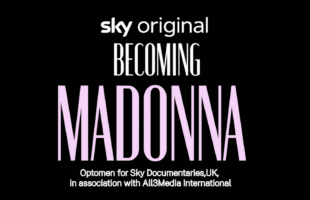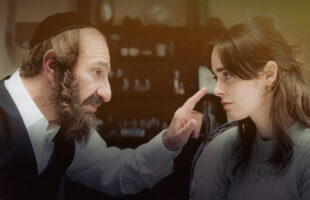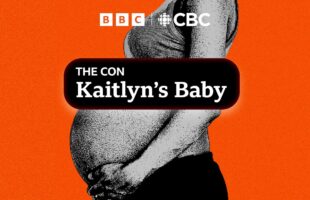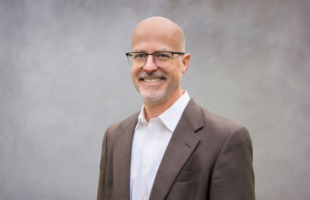Q: King of Cheats (the title) has a somewhat antagonistic tone to it. Why this title?
A: The first thing is that this is a working title, but I think the idea behind King of Cheats is that Lance rode in an era when doping and taking performance enhancing drugs in cycling was very widespread. But no one did it to quite the same degree or with quite the same success that he did. In a way there’s something also celebratory about King of Cheats – he did it better than anybody else.
But our show isn’t just about performance enhancing drugs or even really just about cycling – it’s about so much more. When ABC made their current affairs show, The World According To Lance, which was one of the programmes that broke the story in the first place; I think they did a great job with establishing the facts of Lance’s drug-taking and his cheating. What I think the role of this film is, is to go beyond that, to go a bit deeper into Lance’s character, to look at the bigger story – one that perhaps takes us right back to the early days because Lance wasn’t always a drug cheat. You know once he was a school boy, like many of us have been, who dreamt of being a great sports hero and wanting to win the greatest endurance race in the world. What we’re interested in is what the effect of having a secret like that is – how it kind of hollows out a character, how it changes and warps his personality; and how this led to him basically destroying other people and warping his own relationships with people.
Q: How much access do you have to Lance Armstrong, and the people close to him?
A: We are fortunate to be standing on the shoulders of a lot of work that’s been done by Quentin McDermott who produced the original show for Four Corners. He has developed a lot of the relationships with many of the key people over the years.
When it comes to Lance himself, we’ve made a proposal to him to take part in our film. We’re waiting to hear back. Perhaps he rather deepened his troubles by what he said on the Oprah interview because he didn’t really come clean – it was at best a partial admission. And it raised as many questions as it answered. So I think there is still a place for Lance to come forward and really tell the full story.
Sports coverage produces huge amounts of footage – it’s covered in every angle and sports personalities are filmed at every opportunity. But it’s yesterday’s news and passes very quickly. But if you have time to go back and revisit that footage and really focus on it, drill down into it and ask yourself the questions: ‘What is really going on here?’ Especially when you have the knowledge and the hindsight provided by all the other interviews that you have got, you see the footage in a different light and actually you find that it illustrates different things than what people thought at that time. So we can add to the material, construct the story and cut it more like a drama than a documentary.
Q: You said you tend to see it more as drama?
A: My background has been in feature films for the last four or five years. I think that to really explore the full depth of this story, you have to look at a dramatic narrative – Lance as a character and you know, his story has a huge character arc. He goes from this innocent young boy to being this hollowed out, broken man. He may well rise again from the ashes – a man of incredible resources!
But it’s an arc of a tragic hero in a way, and in a way that’s what I mean when I talk about drama is that sense of the grand scale of the narrative of following a character through these traumatic changes. And also, looking at what happens to the relationships, studying how that impacts on the relationships with the people closest to him – how it corrodes the relationships, creates antagonism within the groups. That’s the story we want to tell.
Q: How far back into his life do you plan to go?
A: Oh, right back. I’m interested in thinking about what was Lance like before he took his first performance enhancing drug. Where did his ambition come from, what drove him? One of the interesting things that came out of our early research that hasn’t really been explored is that American cycling changed radically in 1984, which was the year of the Olympics and up until that year, the U.S. cycling team hasn’t won any medals at the Olympics since 1912. In fact, back in 1984, they were blood doping – they were actually substituting their own blood with other people’s blood before they raced and there was a big controversy about it. And back then, Lance was a 13-yearold boy watching the Olympics for the first time as an aspiring athlete and he saw those men win those medals and really creating a huge story for his country in a sport that he was interested in.
Q: Between this being called an exposé or a possible mouthpiece for Lance Armstrong, where do you think this documentary falls under?
A: I think the exposé’s already happened! But I think it would be a revealing look at a character and a set of relationships. And it certainly isn’t one that is a promotional film for Lance Armstrong. It’s trying to get to the truth behind it and the truth is never gotten through exposé. One of the ways you can approach this is to say it’s the first draft of history. I’m sure this is such a big story in sport that this story will be examined again and again over the years and inevitably more information always comes to light. But this is an attempt to step back for the first time and say ‘What was really going on here? What were the motivations of the people involved? How did it change their characters, how did things change over time and what was the end result?’
Q: What’s the connection with ABC Australia and eventually having ABC Commercial distribute this?
A: The story of the making of this was that Quentin McDermott, who is a reporter on Four Corners, had been following this story for a long time and has been planning to prepare a film about Lance. I simultaneously but completely independently had an interest in Lance. So when the ABC realised that they had more material than they could possibly fit into a current affairs show, that there were deeper themes they could examine here, they were looking for someone to think ‘How do we realise this is a deeper story, a more profound characterdriven story?’ So Quentin, who knew of my interest, contacted me. And that’s how we came together.
And actually with feature documentaries, they are often very difficult to finance and to fund. But the ABC realised that actually this was a story for which there was an appetite sooner rather than later. People wanted to know more about this story and so they took the decision to come on board and fully fund the documentary, which is a fantastic example to other people as to if you believe in something, you can make it happen. As a result, we were able to get into production with really quite a complex and sophisticated film much sooner than we might be able to otherwise.
Q: You mentioned you have access to third-party content – archived footage?
A: We will cast our net as wide as possible in order to find all the necessary material in order to find those little moments that bring the story to life. It’s certainly true that we have access to some previously unseen footage, some private footage, footage provided to us from people within Lance’s inner circle; there are intimate moments as well as footage filmed for sports coverage. So there’s a whole mix of footage, different sources in there. My job as a filmmaker is to weld that all together to make it feel like a piece and make it all sit comfortably alongside each other. But it’s very exciting to have such a range of material available to us. On one hand, we have footage that was shot for IMAX – there was actually an IMAX film made of the Tour de France in one of the years Lance won. The footage is amazing, it has scale like you can’t imagine. But on the other hand, we have footage shot on phone cameras and things like that. They both have a value and a place in the film and I think it’s more exciting as a result of combining all those different elements. It’s interesting I was flipping though the MIP magazine yesterday and on every page there was something about 4K. Of course because we have theatrical ambition for this film, we will be mastering it in 4K. So it’s going to be available to any broadcasters who are up to speed with distributing in 4K.
For the complete version of TV ASIA Plus’ interview with Alex Holmes, go to www.onscreenasia.com.








